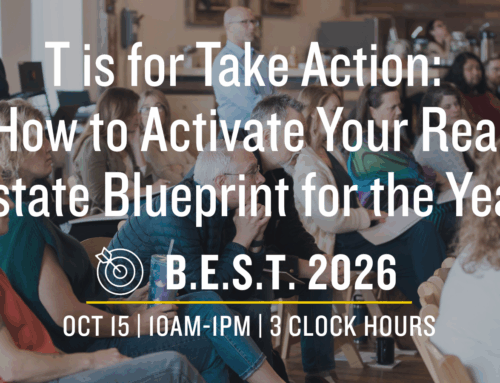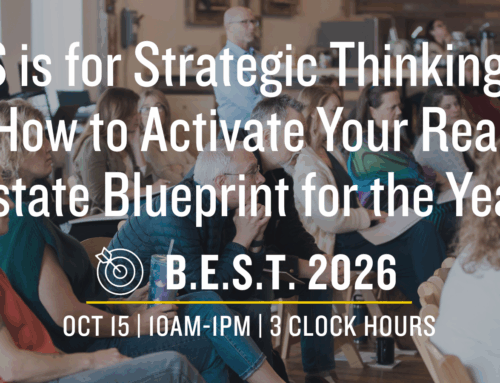Some of the most important moments in our business are the ones nobody sees. Those tough, quiet beats between the big updates. An inspection blows up. A lender ghosts. A seller’s timeline changes overnight. This is where your work behind the work shows up: the quality of your real estate client communication when it’s uncomfortable.
At Metropolist, we don’t pretend hard conversations don’t happen. We prepare for them. We practice them. We build habits that make them less scary and more service-oriented so clients feel held, not handled.
Why hard conversations feel hard
Hard client moments tend to collide with three stressors:
-
Uncertainty: You don’t have every answer yet.
-
Identity: You want to be the hero, not the messenger.
-
Timing: You’re already busy, and proactive calls take time you didn’t plan for.
The fix isn’t bravado, it’s structure. When communication becomes a system, not a surge of courage, your professionalism becomes dependable.
Three anchors for hard moments
1) Name the reality, then narrow the next step
When emotions spike, clients need one true sentence and one small step.
-
True sentence: “The buyer’s lender missed today’s doc deadline.”
-
Small step: “I’ve requested an updated delivery time and a late-day extension; I’ll confirm by 3pm.”
Clarity reduces drama. Specific timelines reduce spirals. Use short, declarative language. Avoid adding your fear to their fear.
2) Frame choices, not ultimatums
Clients make better decisions when the choices, and tradeoffs, are framed side-by-side.
-
“We can grant the extension and keep this buyer (likely closes, loses one day), or issue a notice to perform and test their capacity (risk: they walk; benefit: stronger posture).”
This is real estate client communication at its best: calm, choice-centric, and honest about risk.
3) Keep a visible cadence
Silence is the caldo that cooks anxiety. Create a communication cadence you can keep:
-
Morning pulse (text): “Quick check-in: appraisal due today by 2pm. I’ll call you at 3 with the result.”
-
Afternoon call: Even if the news is “no news,” honor the call.
-
Evening Marco Polo (video): 30–60 seconds: recap, what you did, what’s next.
Clients don’t only rate outcomes. They rate steadiness.
The Metropolist way
We practice what we preach—literally. This is where brokers test phrasing, timing, and tone before high-stakes moments. Think of it as a batting cage for language. We keep scripts human, flexible, and rooted in consent-based selling (hello, Ninja). If it’s not working, we jump on Marco Polo and put it out to the office. Someone has had a similar situation and can answer with real world examples.
A 5-line mini-script for bad news
Use this when you need to deliver a hit without losing trust:
-
Headline: “I have an update on the inspection and it isn’t the one we hoped for.”
-
Reality in one sentence: “The sewer scope shows a break near the main.”
-
Care statement: “I know that’s a gut punch; I’m right here with you.”
-
Two options with tradeoffs: “We can either request a repair/credit, likely slower but keeps you in contract or you can terminate and pivot to other homes.”
-
Next action + time: “What we do is up to you, but I’m ready to fill out the form and keep things moving when you decide.”
You don’t need a monologue. You need a spine.
What to do before you call (when you’re unsure)
-
Write your headline. One sentence. No hedging.
-
Decide your recommendation. Don’t ask them to pick and teach them the game at the same time.
-
Check your tone. If you need feedback, record a 30-second Marco Polo for yourself or a teammate. Aim for clear, slow, warm.
-
Set a timer. Calls land best when they’re concise (2–4 minutes) and followed by a short, written recap.
What to do after you call
-
Summarize in writing. Text or email with bullet points: What happened, your recommendation, next step, time of next update.
-
Log the touch. At Metropolist, we build repeatable systems because trust scales with tracking.
-
Protect your next update. If you promise “by 3,” set a 2:45 reminder. Momentum is a trust deposit.
Mindset reframes that help
-
“I’m not delivering disappointment; I’m delivering agency.” Framing choices is service.
-
“Silence isn’t neutral; it’s noise.” If you don’t fill the gap, Google and group chats will.
-
“Confidence lives in cadence.” You don’t need the perfect words if you show up predictably.
A quick word about empathy
Empathy isn’t endless conversation; it’s targeted. Mirror a feeling, validate it, then return to the plan:
-
“I hear how frustrated you are; that makes sense. Here’s how we protect your position in the next two hours.”
That balance—human + operational—is what clients remember when they refer you.














